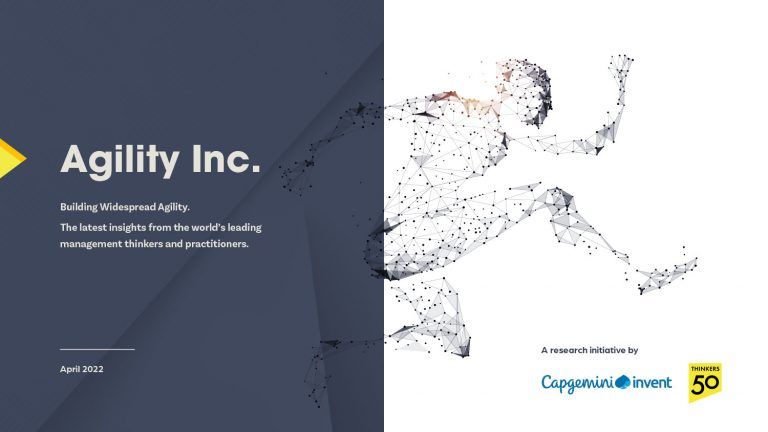

My early academic research focused on power, trust, and conflict in organizations. Last week’s blog was inspired by the research on power, and this week, the focus in on conflict in organizations.
Conflict emerges when one party perceives its goals, values or opinions are being thwarted by an interdependent (team member or colleague in organizations, though conflict can also be across organizations with suppliers and dealers) counter party. Historically, researchers believed conflict had negative consequences, and therefore, should be avoided in organizations.
As research on conflict became more elaborate, a distinction was drawn between:
Much of the research examined the effects of these two types of conflict on team performance and team member satisfaction.
Relationship conflict was considered to have only negative effects on both team performance and team member satisfaction. It distracted members and produced tension in them. In contrast, task conflict, it was argued, at low levels would be positive for team performance on non-routine tasks as it helps members confront issues, forces them to take different perspectives, and be creative. In its absence, teams may not realize inefficiencies exist. For routine tasks, task conflict is negative as it just gets in the way of implementing known processes.
These conclusions were the received wisdom in mainstream organizational behaviour text books. And, in this view, managers should become “orchestrators” of conflict on the right issues between the right people at the right times operating under the right ground rules. Some famous coaches were famously known to generate some conflict among their team members in the hope of higher team performance. My PhD advisor, Lou Stern, taught his students that conflict can lead to growth, creativity and innovation.
While a good story, the results from recent meta-analysis (summarizes known research on topic) failed to support the above conclusions. Instead, research findings on conflict are now more nuanced as the following:
So, we can now conclude that there “MAY” be some positive effects of task conflict if:
Regardless of its negative effects, conflict will occur in organizations. In the presence of conflict, a win-win approach (constructive controversy, integrative negotiation) which open mindedly debates issues, tries to learn and incorporate other perspectives, and exchange arguments and positions to mutual benefit is preferable to pursuing win-lose approach or impasse. However, even these integrative solutions ignore the following three costs:
Given these findings, it is best to avoid conflict as managing it would tax the interpersonal and cognitive skills of even the best orchestrators. And, when it does appear, integrative solutions should be sought even if they do have some costs because they are superior to the alternative of having conflict poorly managed in organizations.
Furthermore, often the conflict in organizations is a result of competition spinning out of control. It is therefore important to distinguish between the two. Competition is when two parties seek to “win” without impeding the other. Think of 100 metres, where the individuals run in designated lanes, or golf. The trophy is held by a third party. Conflict is where to “win”, the party must overcome the counter party, who stands in the way. Most team sports and boxing fall within this realm. Unlike conflict, competition in organizations has many positive benefits, provided we don’t start seeing the competing party as an enemy to be overcome.
Competition in organizations must also not obstruct collaboration, which is joint striving by parties towards a common goal. Much of the incentive system design in organizations is focussed on how to balance the need for individual performance via some level of competition between colleagues (e.g., forced ranking performance evaluation systems) versus the necessity for collaboration between these same individuals.
Nirmalya Kumar is Visiting Professor of Marketing at London Business School & Distinguished Fellow, Emerging Markets Institute at INSEAD. As an author, Nirmalya has written six books, the latest being Brand Breakout: How Emerging Market Brands Will Go Global. Having ranked on the Thinkers50 every 2 years since 2011, he was also awarded the Global Village Award for contributing the most to the business community’s understanding of globalisation and the new frontiers established by emerging markets.

Thinkers50 Limited
The Studio
Highfield Lane
Wargrave RG10 8PZ
United Kingdom

Thinkers50 Limited
The Studio
Highfield Lane
Wargrave RG10 8PZ
United Kingdom

| Cookie | Duration | Description |
|---|---|---|
| LANG | 9 hours | Linkedin set this cookie to set user's preferred language. |
| nsid | session | This cookie is set by the provider PayPal to enable the PayPal payment service in the website. |
| sp_landing | 1 day | The sp_landing is set by Spotify to implement audio content from Spotify on the website and also registers information on user interaction related to the audio content. |
| sp_t | 1 year | The sp_t cookie is set by Spotify to implement audio content from Spotify on the website and also registers information on user interaction related to the audio content. |
| tsrce | 3 days | PayPal sets this cookie to enable the PayPal payment service in the website. |
| x-pp-s | session | PayPal sets this cookie to process payments on the site. |
| __cf_bm | 30 minutes | This cookie, set by Cloudflare, is used to support Cloudflare Bot Management. |
| Cookie | Duration | Description |
|---|---|---|
| l7_az | 30 minutes | This cookie is necessary for the PayPal login-function on the website. |
| Cookie | Duration | Description |
|---|---|---|
| CONSENT | 2 years | YouTube sets this cookie via embedded youtube-videos and registers anonymous statistical data. |
| _ga | 2 years | The _ga cookie, installed by Google Analytics, calculates visitor, session and campaign data and also keeps track of site usage for the site's analytics report. The cookie stores information anonymously and assigns a randomly generated number to recognize unique visitors. |
| _gat_gtag_UA_10408481_1 | 1 minute | Set by Google to distinguish users. |
| _ga_ZP8HQ8RZXS | 2 years | This cookie is installed by Google Analytics. |
| _gid | 1 day | Installed by Google Analytics, _gid cookie stores information on how visitors use a website, while also creating an analytics report of the website's performance. Some of the data that are collected include the number of visitors, their source, and the pages they visit anonymously. |
| Cookie | Duration | Description |
|---|---|---|
| NID | 6 months | NID cookie, set by Google, is used for advertising purposes; to limit the number of times the user sees an ad, to mute unwanted ads, and to measure the effectiveness of ads. |
| test_cookie | 15 minutes | The test_cookie is set by doubleclick.net and is used to determine if the user's browser supports cookies. |
| VISITOR_INFO1_LIVE | 5 months 27 days | A cookie set by YouTube to measure bandwidth that determines whether the user gets the new or old player interface. |
| YSC | session | YSC cookie is set by Youtube and is used to track the views of embedded videos on Youtube pages. |
| yt-remote-connected-devices | never | YouTube sets this cookie to store the video preferences of the user using embedded YouTube video. |
| yt-remote-device-id | never | YouTube sets this cookie to store the video preferences of the user using embedded YouTube video. |
| yt.innertube::nextId | never | This cookie, set by YouTube, registers a unique ID to store data on what videos from YouTube the user has seen. |
| yt.innertube::requests | never | This cookie, set by YouTube, registers a unique ID to store data on what videos from YouTube the user has seen. |
| Cookie | Duration | Description |
|---|---|---|
| DEVICE_INFO | 5 months 27 days | No description |
| loglevel | never | No description available. |
| m | 2 years | No description available. |
Thinkers50 Limited has updated its Privacy Policy on 28 March 2024 with several amendments and additions to the previous version, to fully incorporate to the text information required by current applicable date protection regulation. Processing of the personal data of Thinkers50’s customers, potential customers and other stakeholders has not been changed essentially, but the texts have been clarified and amended to give more detailed information of the processing activities.